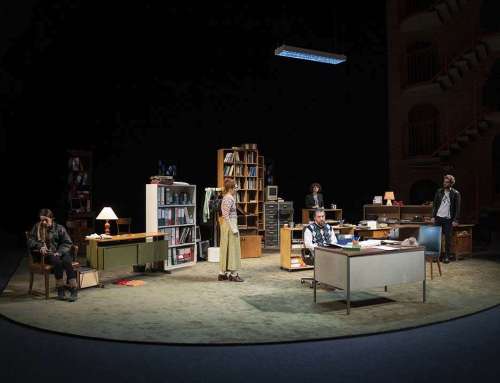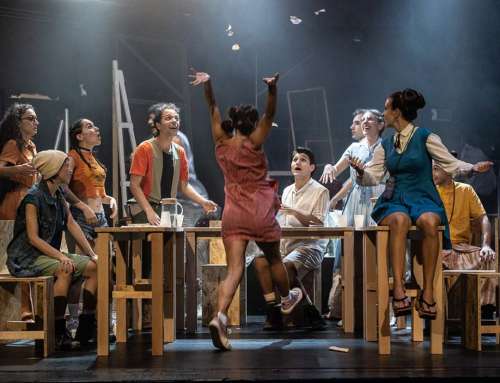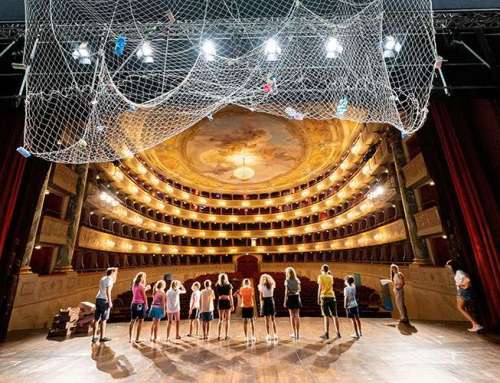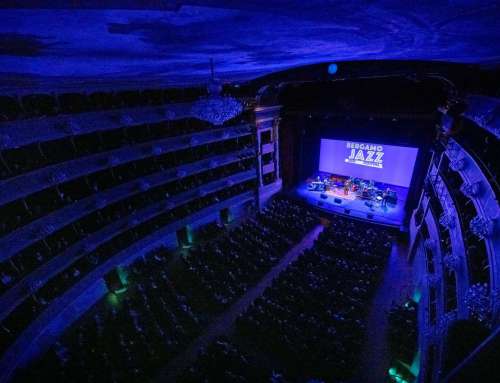This year, as per tradition, the Teatro Donizetti Foundation’s Theater Season hosts a production of the Teatri di OperaLombardia, a regional circuit that brings together the cities of Brescia, Como, Piacenza, Pavia, and, of course, Bergamo, where on Friday, January 10 (8:00 PM) and Sunday, January 12 (3:30 PM) Rigoletto, a three-act opera
by Giuseppe Verdi, with a libretto by Francesco Maria Piave based on Victor Hugo’s drama Le roi s’amuse, will be staged at the Teatro Donizetti. Directed by Matteo Marziano Graziano and with musical direction by Alessandro D’Agostini, the new production of Verdi’s masterpiece features sets by Francesca Sgariboldi, costumes by Laurent Pellissier, and lighting by Cristian Zucaro. The orchestra I Pomeriggi Musicali di Milano and the OperaLombardia Choir, directed by Diego Maccagnola, will perform. Characters and performers: Rigoletto Giuseppe Altomare, The Duke of Mantua Paride Cataldo, Gilda Bianca Tognocchi, Sparafucile Mattia Denti, Maddalena Victória Pitts, Giovanna/The Countess of Ceprano Lara Rotili, The Count of Monterone Baopeng Wang, Marullo Lorenzo Liberali, Matteo Borsa Raffaele Feo, The Count of Ceprano Graziano Dallavalle, The Duchess’s Page Federica Cassetti, Court Usher Marco Tomasoni.
The two performances will be preceded, on Thursday, January 9 at the “M. Tremaglia” Music Hall of the Teatro Donizetti (6:00 PM), by a meeting titled Rigoletto and Lucrezia Borgia: Victor Hugo from Donizetti to Verdi, featuring speakers Livio Aragona, Paolo Fabbri, and Candida Mantica from the Donizetti Studies Center of the Teatro Donizetti Foundation.
«Rigoletto is a complex character, whose disabled body makes him the object of mockery and marginalization. His physical condition does not conform to the norms of normality and social acceptability, forcing him to live as an outcast in a cruel world. To survive, Rigoletto exploits his disability, turning it into a macabre spectacle that entertains and disgusts the Duke’s court», says Matteo Marziano Graziano in the director’s notes. «The concept of Rigoletto revolves around the theme of Fracture, which emerges strongly in every aspect of the opera, from the characters to the scenes, to the costumes. The term Fracture, which derives from the Lombard spahhan, means to split, to create cracks in something. With this opera, Verdi casts a critical light on a deeply flawed, corrupt, and divided society, where the lack of morality towards women, the lack of compassion for different bodies, and the relentless pursuit of personal power at the cost of corruption and favoritism reveal a world in which human values have been irreparably compromised». «The concept of the production is not intended to be a simple act of denunciation, but rather an invitation to a deep reflection on our contemporary society, on our blind spots and the cracks we still need to heal today», continues the director, «In this interpretation, the Fracture becomes not only a narrative theme but also a visual and symbolic element that permeates the entire staging. The sets play with broken lines and transparencies, creating an atmosphere of tension and uncertainty that reflects the tormented soul of the characters. The costumes, made with recycled materials and upcycling techniques such as patchwork and Japanese boro-boro, accentuate this division, using shapes and colors that sharply separate the opulent and decadent world of the court from Rigoletto’s dark and deformed world. The lighting also helps to emphasize the emotional and moral fractures of the opera, with plays of shadows and cuts of light that amplify the sense of discomfort and alienation». «Performing
Rigoletto means coming to terms with one of the most dramaturgically complex works in Verdi’s catalog, not only for the strictly performative aspects – which can mean: realizing the unique “tints” of the orchestral palette, the declamation of the vocal lines, so extraordinary in their novelty, the relentless tension of the drama’s concatenations – but also for the ambivalence of each of its characters», comments the orchestra conductor Alessandro D’Agostini, «Performing Rigoletto today requires a reflection on the deeper meaning of this music so strongly characterized, which in its truth demands to “drop the mask” beyond conventions, practices, and performance “traditions,” to attempt to touch a dramatic truth that, when listened to, cannot leave one indifferent. “Narrating” this work means, in fact, returning primarily to the text in its nakedness, to appreciate its strength, the uniqueness of its “tint”; it means working with the performers, deeply, on the “scenic word” to make it effective in “sculpting and making the situation clear and evident,” according to the well-known words of the Composer himself.






